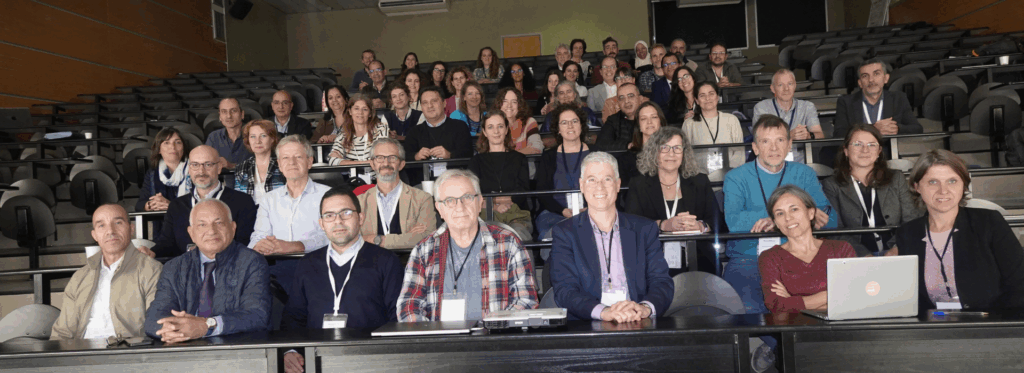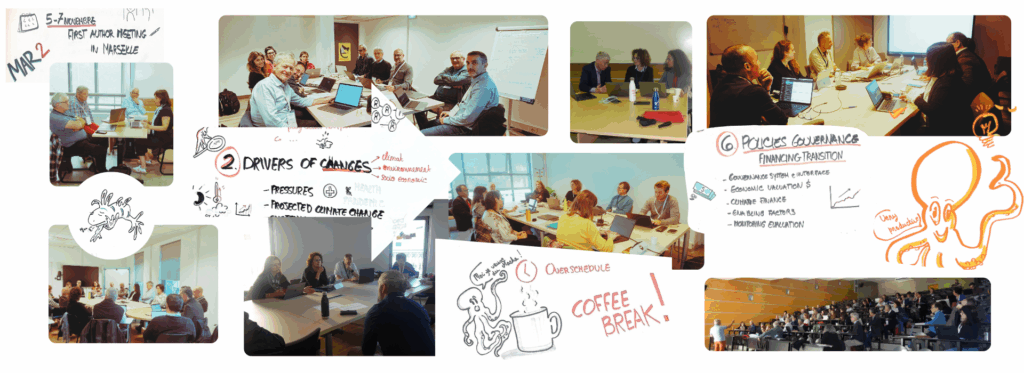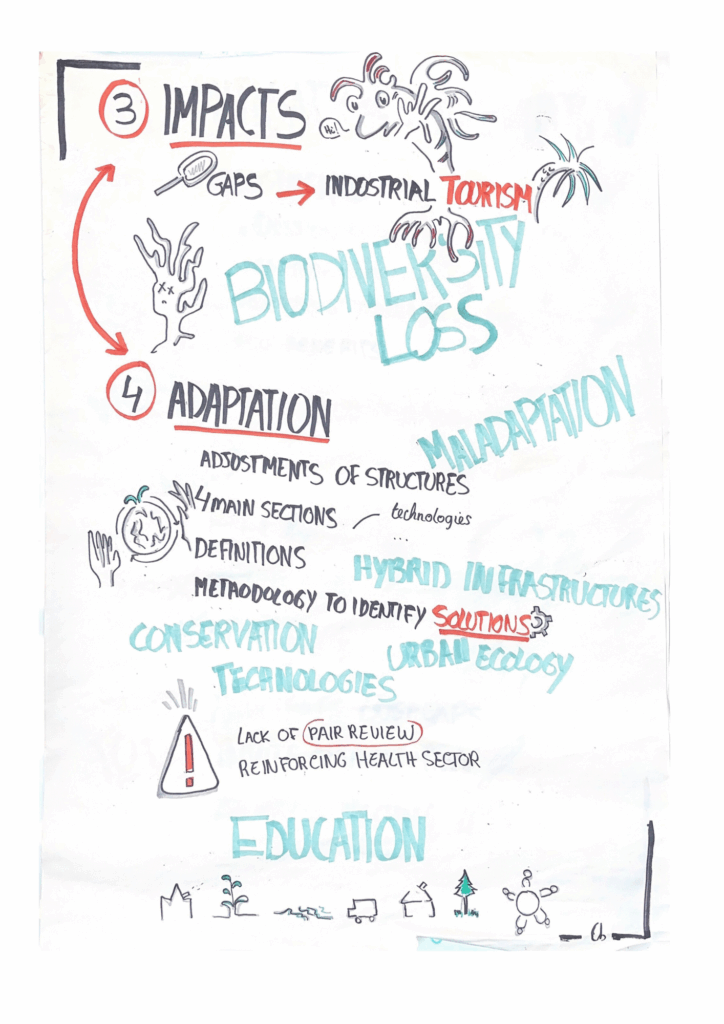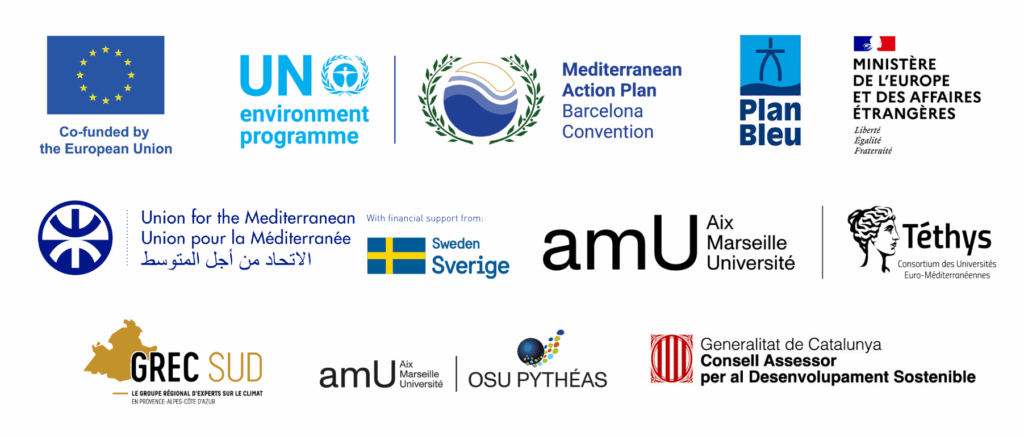From 5 to 7 November 2025, MedECC organised the First Author Meeting of the Second Mediterranean Assessment Report (MAR2) at Aix-Marseille University, in collaboration of the Tethys Euro-Mediterranean University Consortium. The event brought more than 50 scientists from 15 countries, representing a wide range of disciplines from climate science to social research. Their shared objective: to conclude on a detailed structure of MAR2 and advance the initial draft.

Key outcomes
Through plenary discussions and breakout sessions, the authors refined chapter structures, identified cross-cutting themes, and strengthened interdisciplinary coherence. They also consolidated the foundations of a robust methodology designed to ensure the reports’s scientific rigour and full traceability of findings. They harmonised approaches for assessing risks, impacts, and response options, creating a consistent framework to be applied across all chapters.
A key point that emerged during the meeting was the importance of applying a nexus perspective throughout the entire report. Participants agreed that this way of thinking — which takes interconnected challenges into account — is essential for responding to decision-makers’ needs and for reflecting the complexity of Mediterranean issues. Over the three days, the group worked together to make sure this mindset is well integrated into the report’s structure, methods, and overall coherence.

Next steps
Following the meeting, the writing teams will prepare an initial draft text (the ‘Zero Order Draft’), based on the agreed report structure. This draft will undergo internal review by scientists before the First Order Draft is prepared in 2026 for wider external review, ensuring rigorous scientific validation and inclusivity of perspectives. The MAR2 process will span several years, with anticipated publication in 2028. It will involve successive drafting cycles, expert reviews, and consultation by governments and stakeholders, further consolidating MedECC as a key interface between science and policy in the Mediterranean.
Coordination and acknowledgements
The meeting was coordinated by Mohamed Abdrabo, Philippe Drobinski, Marta Guadalupe Rivera Ferre, and MedECC Coordinators Salpie Djoundourian, Joël Guiot, and Piero Lionello, with support from the Secretariat’s Science Officers, Katarzyna Marini and Julie Gattacceca.
Cécile Bergeot, Reports and communication officer at GREC-SUD (France), contributed as a graphic facilitator to the event by producing visual summaries, enhancing the communication and engagement of scientific discussions


Partners and fundings
MedECC Secretariat is officially hosted by Plan Bleu, a UNEP/MAP Regional Activity Centre in Marseille, France, as part of a partnership with the Secretariat of the Union for the Mediterranean (UfM). MedECC is financially supported by the European Union via the Directorate-general Middle East, North Africa and the Gulf (EU DG MENA), Union for the Mediterranean (UfM) with funding from the Swedish International Development Cooperation Agency (SIDA) and the support of the Association GREC-SUD, the United Nations Environment Programme/Mediterranean Action Plan (UNEP/MAP) via the Mediterranean Trust Fund and through a targeted financial support from the French Ministry for Europe and Foreign Affairs (French: Ministère de l’Europe et des Affaires étrangères).
This event also benefits from the support of the Théthys Euro-Mediterranean University Consortium.
‘The Tethys Euro-Mediterranean University Consortium, coordinated by Aix-Marseille University, was founded in the year 2000 with the aim of contributing to the creation of a Euro-Mediterranean area of higher education, research, and innovation.
Through Tethys, the member universities of the network join forces to build a space for cultural and scientific exchange, to foster cooperation among Euro-Mediterranean countries, and to develop ambitious partnerships in the service of the Mediterranean. Today, the network brings together 87 universities from 22 countries, representing 3 million students.
Tethys is committed to acting for the future of the Mediterranean by promoting major projects dedicated to climate change and the adaptation of Mediterranean territories and populations. In this spirit, the network is pleased to welcome, at Aix-Marseille University, the researchers and coordinators of the MAR-2 report, on the occasion of the authors’ meeting organised by MedECC from November 5 to 7 in Marseille.’

